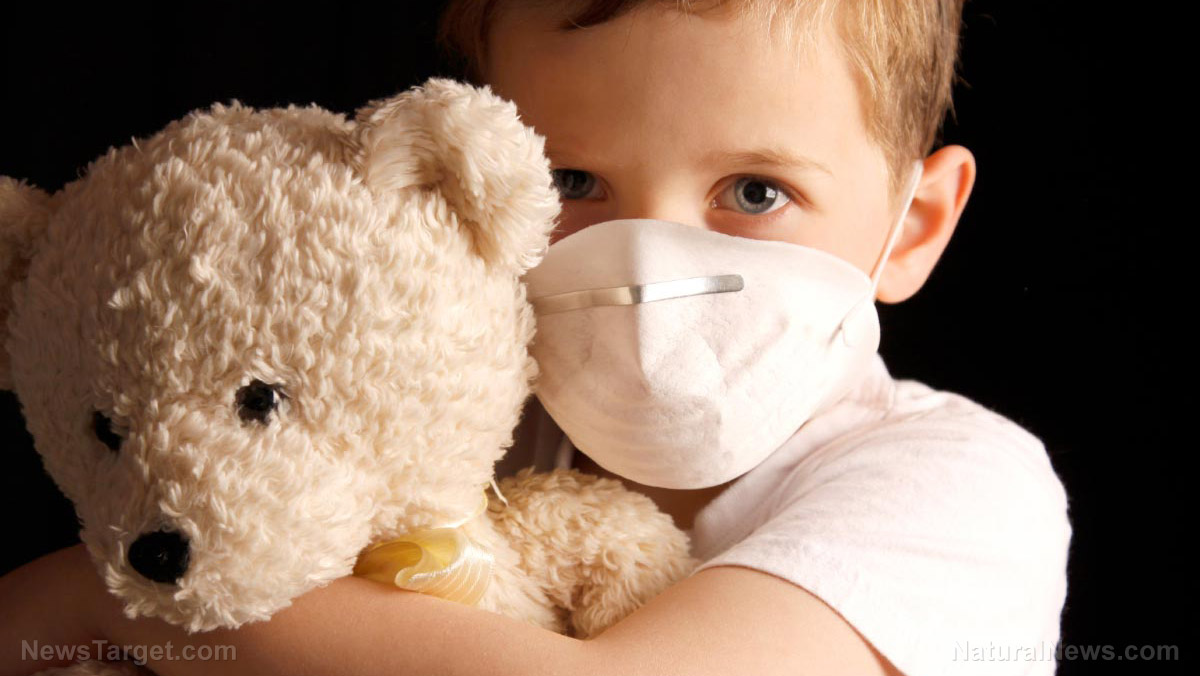Is schizophrenia a side effect of infection? New research reveals a link between maternal infections and symptoms in newborns
12/19/2017 / By Ralph Flores

Expectant mothers have many things that they should steer clear of if they want to have a smooth pregnancy. According to a study made by the University of Otago, getting an infection is one of the worst things that can happen to pregnant people, as an activation of her immune system can spell out “critical cognitive deficits linked to schizophrenia” in her children. (Related: Smoking During Pregnancy Increases Risk of Schizophrenia in Children, New Study Reports)
Dr. Ryan Ward, the lead author of the study and a senior lecturer from the Department of Psychology, explains that this condition is because of an “interaction of genetic and environmental hits,” which can progress to schizophrenia in the future.
“One environmental hit that has been shown to be a significant risk factor is activation of the maternal immune system, likely caused by illness during pregnancy,’’ he continues.
For the study, in vivo tests were conducted to rats in order to prove this theory. Results from the tests indicated that the maternal immune system, when triggered, can create “impaired timing” — a key indicator of schizophrenia symptoms and damage. This impediment is distinguished by the person’s inability to properly evaluate time: which is also the first symptom in patients who suffer from schizophrenia. This can also branch out to other symptoms such as hallucinations and cognitive impairment.
Additionally, the animal test yielded that offspring whose mothers had an infection during pregnancy displayed symptoms similar to those with schizophrenia, namely, overestimated time.
This study is the first of its kind to correlate maternal immune system activation to timing impairments — making activations the main culprit in severe schizophrenia-relevant impairments in humans.
In this regard, Dr. Ward recommends added vigilance regarding their health: “Taking extra care during pregnancy should be a primary goal for expectant mothers and healthcare providers, as illness during this time can have far-reaching consequences. For those with a family history of mental illness, this becomes even more important.”
Earlier studies have explored the risk of schizophrenia in children, particularly when their mothers had been exposed to influenza during pregnancy. In this study, it was noted that when a fetus is exposed to influenza while in the womb, this may cause problems in its development, especially if the fetus has an existing vulnerability to mental disease.
However, the discussion regarding maternal infection and schizophrenia go way back because of one hotly contested factor: vaccination. With countries such as the United States and Canada pushing for influenza vaccines for pregnant women, studies have pointed out the possibility of schizophrenia developing in children after their mothers are subjected to a controlled maternal infection with the vaccine.
The studies are only some of a long line of research that highlight the risk of schizophrenia when the immune system of the mother is activated — be it from an infection or vaccination. The first recorded research regarding the matter was published in Finland in 1988, which states that prenatal exposure to influenza can lead to more serious psychiatric cases in the future, most notable of which is schizophrenia. The data for the study was taken from data taken during birth in Helsinki during the 1957 influenza epidemic. Another study conducted in Denmark also yielded the same results.
To learn more about taking care of your body without having to undergo flu shots, go to Influenza.news today.
Sources include:
Tagged Under: brain health, infectious disease, influenza, maternal infections, newborns, pregnancy, schizophrenia



















